deal
Netflix shifts $72 billion Warner Bros Discovery deal to all-cash
Netflix has revised its $72 billion acquisition of Warner Bros. Discovery into an all-cash transaction, streamlining the deal and providing greater certainty for Warner Bros. shareholders.
The streaming giant initially proposed a combined cash-and-stock offer, valuing Warner Bros. shares at $27.75 each, with a total enterprise value of $82.7 billion including debt. Under the amended all-cash structure, the per-share value remains unchanged at $27.75, while Warner Bros. stockholders will also receive additional value through shares of Discovery Global following its separation from Warner Bros.
Both companies’ boards have approved the revised all-cash deal, which is expected to simplify the transaction process and accelerate the timeline for a shareholder vote.
With inputs from NDTV
1 month ago
Signing of deal with Argent LNG leaves room for negotiation: BIDA Chairman
Referring to Bangladesh's agreement with Argent LNG, BIDA Executive Chairman Chowdhury Ashik Mahmud Bin Harun has said signing a non-binding HOA (Heads of Agreement) that outlines key terms but leaves room for negotiation is the first step in a process.
"The path to a comprehensive, binding contract will follow laws of Bangladesh including the Public Procurement Act, 2006, the Public Procurement Rules, 2008 and the Foreign Private Investment (Promotion and Protection) Act, 1980," Bangladesh Investment Development Authority (BIDA) Chairman Ashik said in a statement on Sunday.
Chief Adviser's press wing shared the statement.
Read: BIDA launches FDI Heatmap to attract targeted investment in key sectors
Quoting a company statement, Reuters earlier on Friday reported that Argent LNG, which is developing a 25 million metric tonnes per annum (MTPA) LNG facility in Louisiana, has signed a non-binding agreement with the government of Bangladesh to purchase up to 5 million metric tons of liquefied natural gas (LNG) annually.
This is the first major U.S. LNG supply deal since President Donald Trump took office on Monday, and according to the parties, reflects industry confidence in the new administration's pro-energy policies, the report reads.
1 year ago
Bangladesh to sign another deal with Oman to increase LNG import
State-owned Petrobangla, the oil gas and mineral corporation of Bangladesh, is set to sign another agreement with OQT, Oman to import more liquified natural gas (LNG) from the Middle-east country.
According to the Ministry of Power Energy and Mineral Resources, the signing ceremony between Petrobangla and OQT, the Omani state-owned company, will take place in the city on Monday.
Also Road: Deal signed with Qatar to get additional 1.5 MTPA of LNG for next 15 years
Prime Minister’s Energy Advisor Dr. Tawfiq-e- Elahi chowdhury and State Minister for Power Energy and Mineral Resources Nasrul Hamid are expected to be present at the function.
Currently, Bangladesh has been importing 1-1.5 million tonnes of LNG from Oman under a state level deal.
“This will be in addition to the existing deal with Oman to increase the import by another 1 million MT under a 10-year agreement”, said a senior official of the Ministry of Power Energy and Mineral Resources.
Also Read: Qatar's Amir promises larger supply of LNG to Bangladesh
Bangladesh has been desperately looking for increasing its import of LNG under a long-term agreement to sustain the volatility due to the frequent price fluctuation in the global energy market.
As part of the move, recently Bangladesh signed a new deal with Qatar to get an additional 1.5 million tonnes per annum (MTPA) of liquefied natural gas (LNG) for the next 15 years from 2026.
Also Read: Bangladesh-Oman foreign office consultations held at Muscat
The Petrobangla signed the new agreement with Qatar’s state-owned Ras Laffan Liquefied Natural Gas Company Ltd., (Qatargas).
Also Read: Summit Group receives approval for setting up another LNG terminal
Under the new deal, Qatar will supply an additional about 1.5 MTPA of LNG per year from 2026 to 2040. Of this, Bangladesh will get 12 LNG cargoes in 2026 and 24 cargoes in 2027.
Currently, Bangladesh has been importing 1.82-2.5 million MTPA of LNG since 2018 under an existing deal signed in 2017.
Also Read: Floating LNG terminal resumes supply, but loadshedding keeps increasing
The country's total natural gas production is about 3000 million cubic feet per day (MMCFD) against a demand of 4000 MMCFD leaving a shortfall of about 1000 MMCFD. Of the total production, 700 MMCFD is imported while 2300 MMCFD.
Also Read: Petrobangla wants to set up 3 more LNG terminals to meet growing gas demand
2 years ago
Russia's threat to exit Ukraine grain deal adds risk to global food security
The United Nations is racing to extend a deal that has allowed shipments of Ukrainian grain through the Black Sea to parts of the world struggling with hunger, helping ease a global food crisis exacerbated by the war Russia launched more than a year ago.
The breakthrough accord that the U.N. and Turkey brokered with the warring sides last summer came with a separate agreement to ease shipments of Russian food and fertilizer that Moscow insists hasn't been applied.
Russia set a Thursday deadline for its concerns to be ironed out or it's bowing out. Such brinkmanship isn't new: With a similar extension in the balance in March, Russia unilaterally decided to renew the deal for just 60 days instead of the 120 days outlined in the agreement.
U.N. officials and analysts warn that a failure to extend the Black Sea Grain Initiative could hurt countries in Africa, the Middle East and parts of Asia that rely on Ukrainian wheat, barley, vegetable oil and other affordable food products, especially as drought takes a toll. The deal helped lower prices of food commodities like wheat over the last year, but that relief has not reached kitchen tables.
“If you have a cancellation of the grain deal again, when we’re already at a pretty tight situation, it’s just one more thing that the world doesn’t need, so the prices could start heading higher,” said William Osnato, a senior research analyst at agriculture data and analytics firm Gro Intelligence. “You don’t see relief on the horizon.”
U.N. humanitarian chief Martin Griffiths told the Security Council on Monday that the deal was “critical” and talks were ongoing.
Negotiators who gathered in Istanbul last week made little apparent headway. Ukrainian Deputy Prime Minister Oleksandr Kubrakov said the grain deal “should be extended for a longer period of time and expanded” to “give predictability and confidence" to markets.
Moscow says it opposes broadening or indefinitely expanding the deal. Kremlin spokesman Dmitry Peskov said Tuesday that there's an “intense session of contacts” but that ”a decision is yet to be made.”
Russia, meanwhile, is rapidly shipping a bumper harvest of its wheat through other ports. Critics say that suggests Moscow is posturing or trying to wrest concessions in other areas — such as on Western sanctions — and claim it has dragging its heels on joint inspections of ships carried out by Russian, Ukrainian, U.N. and Turkish officials.
Average daily inspections — meant to ensure vessels carry only food and not weapons — have steadily dropped from a peak of 10.6 in October to 3.2 last month.
Russia denies slowing the work, with shipments of Ukrainian grain also declining in recent weeks.
“We cannot agree that the role of the Russian representative (inspector) should be reduced to automatic rubber-stamping, or approval, or appeals submitted by Kyiv,” Russia’s ambassador in Geneva, Gennady Gatilov, told reporters last month.
Asked whether a blockade of Ukraine's coast or more attacks on its ports could follow any withdrawal from the agreement, Gatilov said Russian authorities were “considering all possible scenarios if the deal is not extended.”
Russia has five main asks, according to Gatilov:
— A restoration of foreign supplies of farm machinery and replacement parts.
— A lifting of restrictions on insurance and access to foreign ports for Russian ships and cargo.
— Resumed operation of a pipeline that sends Russian ammonia, a key ingredient in fertilizer, to a Ukrainian Black Sea port.
— An end to restrictions on financial activities linked to Russia's fertilizer companies.
— Renewed access to the international SWIFT banking system for the Russian Agricultural Bank.
The U.N. says it's doing what it can, but those solutions mainly rest with the private sector, where it has little leverage.
The deal has allowed over 30 million metric tons of Ukrainian grain to be shipped, with more than half going to developing nations. China, Spain and Turkey are the biggest recipients, and Russia says that shows food isn't going to the poorest countries.
U.N. Secretary-General Antonio Guterres says Ukrainian corn for animal feed has headed to developed countries, while “a majority” of grain for people to eat has gone to emerging economies.
Even if a “meaningful part” of the shipments goes to developed nations, that “has a positive impact to all countries because it brings prices down," Guterres told reporters in Nairobi, Kenya, this month. "And when you bring prices down, everybody benefits.”
Osnato, the analyst, said markets aren't reacting to Russia’s threats to exit the deal, with wheat recently hitting two-year lows. If the agreement isn’t extended or negotiations drag on, the “loss of Ukraine grains wouldn’t be a disaster” for a month or two, he said.
He says there is “bluster” coming from Russia to push for easing some sanctions because it's shipping record amounts of wheat for the season, and its fertilizers are flowing well, too.
“It’s more about trying to get a little leverage, and they’re doing what they can to put themselves in a better negotiating position,” Osnato said.
Trade flows tracked by financial data provider Refinitiv show that Russia exported just over 4 million tons of wheat in April, the highest volume for the month in five years, following record or near-record highs in several previous months.
Exports since last July reached 32.2 million tons, 34% above the same period from last season, according to Refinitiv. It estimates Russia will ship 44 million tons of wheat in 2022-2023.
The issue is more pressing with Ukraine’s wheat harvest coming up in June and the need to sell that crop in July. Not having a Black Sea shipping corridor in place at that point would “start taking another large chunk of wheat and other grains off the market,” Osnato said.
Ukraine can send its food by land through Europe, so it wouldn’t be completely cut off from world markets, but those routes have a lower capacity than sea shipments and have stirred disunity in the European Union.
Uncertainties like drought in places including Morocco, Tunisia, Algeria, Syria and East Africa — big importers of food — are likely to keep food prices high, and an end to the U.N. deal wouldn't help.
“Any shock to the markets can cause massive harm with catastrophic ripple effects in countries balancing on the brink of famine," said Shashwat Saraf, emergency director for East Africa at the International Rescue Committee.
“The expiration of the Black Sea Grain Initiative is likely to trigger increased levels of hunger and malnutrition, spelling further disaster for East Africa,” Saraf said.
2 years ago
Ukraine welcomes EU deal on continued farm exports
Ukraine on Saturday welcomed the European Union’s hard-fought deal to keep farm exports flowing into and through the bloc to world markets, saying that the Middle East and Africa would specifically stand to benefit from it.
Late Friday, the 27-nation EU ended a damaging internal standoff over a destabilizing glut of Ukraine farm imports by granting five eastern member countries the right to temporarily ban the most problematic produce while allowing all farm products to transit onward.
Resolving the issue allows the EU to maintain a unified stance in the face of Russia’s invasion of its neighbor. “We welcome that we resolved this issue,” Ukrainian Finance Minister Sergii Marchenko said at a meeting of EU finance ministers in Stockholm.
Under the deal, Poland, Hungary, Slovakia, Bulgaria and Romania can keep four farm products that make up the overwhelming mass of exports from Ukraine out of their local markets but must guarantee unfettered access to the rest of the bloc.
Since Russia's invasion of Ukraine hampered Black Sea shipments of Ukrainian agricultural products, using the 27-nation bloc as a transportation route has been essential to getting the nation's prized cereal production on to the world.
"We found a wise decision that would help Ukraine to export necessary commodities, food commodities towards African countries, which is so necessary for them,” Marchenko said, adding Middle East nations would equally profit.
Under the deal, the bloc would basically accept the national bans on four of the five main products — wheat, maize, rapeseed, and sunflower seeds — that account for most imports. The EU would also assess whether other products, including sunflower oil, should also be included.
As an added sweetener, the EU provided 100 million euros ($113 million) more in special aid on top of on an initial support package of 56.3 million euros to help farmers in the affected countries.
On Friday, EU nations also tentatively agreed to lift tariffs on Ukraine's grains for another year. The EU lifted duties on Ukrainian grain to facilitate its transport to Africa and the Middle East by other routes after a Russian blockade kept cargo from leaving Ukraine's ports.
Overall, there was acceptance that the lifting of import tariffs had seriously skewed the local markets in nations closest to Ukraine. In Poland, wheat imports went from 2,375 tons in 2021 to 500,008 tons last year. Maize went from 5,863 tons to more than 1.8 million over the same period.
Similar huge increases were also evident in Hungary, Slovakia and Romania.
2 years ago
SAJIDA Foundation, Orange Corners sign deal to support young entrepreneurs
SAJIDA Foundation and Orange Corners (OC) signed an agreement in January to open a new OC Hub in Dhaka, alongside local partners YY Ventures and the Bangladesh Youth Leadership Center (BYLC).
Through the Orange Corners Access to Finance Fund, implemented by SAJIDA Foundation, the program will also support seed‐funding, said a press release.
The aim of the Orange Corners programme is to enable Bangladeshi youth with skills, funding, and resources to build sustainable businesses; all while enriching and creating an inclusive entrepreneurial ecosystem.
By providing training, access to networks with expertise, and mentorship to young entrepreneurs, the program aims to improve job prospects for youth between the ages of 18 and 35.
With the opening of Orange Corners Bangladesh, Orange Corners will have 18 hubs in 15 countries in Africa, Asia, and the Middle East. Before the end of the year, OC aims to expand to around 20 local hubs.
SAJIDA Foundation is a value-driven, non-profit organisation which embodies the principle of corporate philanthropy, with 51% shareholding of Renata Ltd, one of the fastest growing pharmaceutical and animal health product companies in Bangladesh.
The organisation, founded in 1993, aims to empower communities, catalyse entrepreneurship, foster equity, and establish enterprises for good with an overarching vision of ensuring health, happiness, and dignity for all.
SAJIDA’s operation in Bangladesh has touched over 6 million individuals through multi-sectoral development programs on poverty alleviation, community healthcare and climate change, one of the largest financial service operations and specialised healthcare enterprises.
3 years ago
Russia-Ukraine grain deal extended in win for food prices
A wartime agreement that unblocked grain shipments from Ukraine and helped temper rising global food prices will be extended by four months, the United Nations and other parties to the deal said Thursday, preventing a price shock to some of the world’s most vulnerable countries where many are struggling with hunger.
Ukrainian President Volodymyr Zelenskyy called the 120-day extension a “key decision in the global fight against the food crisis.” Struck during Russia’s war in Ukraine, the initiative established a safe shipping corridor in the Black Sea and inspection procedures to address concerns that cargo vessels might carry weapons or launch attacks.
The deal that Ukraine and Russia signed in separate agreements with the U.N. and Turkey on July 22 was due to expire Saturday. Russia confirmed the extension but said it expected progress on removing obstacles to the export of Russian food and fertilizers.
Ukraine and Russia are key global suppliers of wheat, barley, sunflower oil and other food to countries in Africa, the Middle East and parts of Asia where millions of impoverished people lack enough to eat. Russia was also the world's top exporter of fertilizer before the war. A loss of those supplies following Russia’s Feb. 24 invasion of Ukraine had pushed up global food prices and fueled concerns of a hunger crisis in poorer countries.
While the extension prevents a price shock in developing nations that spend far more on food and energy than richer countries, threats persist from droughts in places like Somalia and the weakening of currencies around the world, which makes buying imported grain more expensive.
“I was deeply moved to know that in Istanbul, Turkey, Ukraine, Russia and the U.N. had come to an agreement for the rollover of the Black Sea Grain Initiative, allowing for the free exports of Ukrainian grains,” U.N. Secretary-General Antonio Guterres said.
The Turkish Defense Ministry said the decision to extend the deal came after two days of talks in Istanbul between delegations from Turkey, Russia, Ukraine and the U.N. that were held in a “positive and constructive” atmosphere.
Russia had voiced dissatisfaction with the deal facilitating exports of Russian grain and fertilizer, hinting that it might not approve an extension and even briefly suspending its part of the deal late last month. It cited risks to its ships following what it alleged was a Ukrainian drone attack on Russia’s Black Sea Fleet.
Although Western sanctions against Russia for its invasion of Ukraine did not target food exports, many shipping and insurance companies were reluctant to deal with Moscow, either refusing to do so or greatly increasing the price.
Guterres said the U.N. was “fully committed” to removing hurdles to shipping food and fertilizer from Russia.
The United Nations has been working to overcome issues related to insurance, access to ports, financial transactions and shipping for Russian vessels, according to a U.N. official who was not authorize to speak publicly and spoke on condition of anonymity. The official said the insurance issue has mainly been resolved in recent days.
Russia has offered to donate 260,000 metric tons of fertilizer stored in European ports to farmers in the developing world who have been priced out of the fertilizer market because of shortages, and the official said the first ship is slated to leave the Netherlands on Monday for Mozambique, where the fertilizer will go by land to Malawi. Further shipments are expected from Belgium and Estonia, the official said.
Read more: Russia to suspend UN-brokered grain deal with Ukraine
The Russian Foreign Ministry said Moscow had allowed the extension to take effect “without any changes in terms and scope.” It said Russia noted the “intensification” of U.N. efforts to hasten Russian exports.
“All these issues must be resolved within 120 days for which the ‘package deal’ is extended,” the ministry said.
During talks on the extension, the sides discussed possible additional measures to “deliver more grain to those in real need,” the ministry added, apparently to address Russian complaints that most of the grain has ended up in richer nations.
Turkish President Recep Tayyip Erdogan suggested Thursday that wheat from Russia could be turned into flour in Turkey and shipped to African nations in need.
U.N. humanitarian chief Martin Griffiths said last month that 23% of the exports from Ukraine under the grain deal have gone to lower- or lower-middle-income countries and 49% of all wheat shipments have gone to such nations.
Markets were pleasantly surprised by the extension, said Ian Mitchell, co-director of the Europe program at the Center for Global Development who specializes in agriculture and food security. Following the announcement, wheat futures prices dropped 2.6% in Chicago.
“Ukraine and Russia are such important grain exporters that the rest of the market can’t fully substitute for the complete absence of Ukrainian grain,” he said. “So that deal is going to matter to food prices significantly, even if the volumes are not what they were before the invasion.”
He said, however, that uncertainty is “unhelpful in this deal.” Toward the end of the four-month extension, markets will “price in the risk that it wasn’t extended, and prices will rise a little bit again.”
Arnaud Petit, executive director of the International Grains Council, said the Black Sea region produces some of the world's cheapest wheat and securing those supplies prevents a price shock to developing nations.
There have been good harvests in the region, contributing to an expected 10 million more tons of wheat worldwide compared with last year, he said. The extension means that Ukrainian farmers can plan to plant.
Petit called the extension a building block in “an unstable region where things can change on a daily basis.”
Read more: Russia rejoins key deal on wartime Ukrainian grain exports
However, when it comes to food prices, trade movement isn’t as important as currencies around the world weakening against a strong U.S. dollar, which commodities like wheat and other grain are priced in, Petit said.
The council calculated that for Ghana, which mainly imports its wheat from Canada, the price of wheat in dollars from Canada has been largely stable for two years. But changing into local currency translated to a 70% price hike.
Global food prices declined about 15% from their March peak after the grain initiative was adopted in July.
“With the delivery of more than 11 million tons of grains and foodstuffs to those in need via approximately 500 ships over the past four months, the significance and benefits of this agreement for the food supply and security of the world have become evident,” Turkey's Erdogan said.
3 years ago
Robi signs tower-sharing deal with Teletalk, Summit
Robi Axiata, Teletlak Bangladesh and Summit Towers have entered into an agreement for sharing existing network infrastructure.
Robi and Teletalk will be able to share their infrastructure in collaboration with Summit Tower as per infrastructure or tower sharing guidelines under the agreement.
A deal was signed among the companies recently in Dhaka.
Read: Robi launches sales academy
The partnership will help the operators with the quick rollout and serve their customers better. It will also help them optimise assets.
Teletalk Managing Director (MD) AKM Habibur Rahman, Summit Tower MD and CEO Md Arif Al Islam and Robi ACEO and CFO M Riyaaz Rasheed signed the agreement, said a media statement.
3 years ago
Deal signed to set up waste-based power plant in Narayanganj
An agreement was signed today (September 1, 2022) by Bangladesh Power Development Board (BPDB), Narayanganj City Corporation (NCC) and Chinese firm U&D to develop the country’s second waste-based power plant.
The power plant will generate 6 MW of electricity from garbage of Narayanganj city and adjoining areas.
Welcoming the deal, LGRD and Cooperatives Minister M Tajul Islam said more such projects will be set up in other city corporation areas.
Earlier, a similar agreement was signed in December last year by BPDB, Dhaka North City Corporation (DNCC) and the Chinese firm CMEC to develop the country’s first waste-based power plant in Dhaka with electricity generation capacity of 42.5 MW from garbage.
As per the agreement, Narayanganj City Corporation will supply 600 metric tons of garbage to the U&D plant to generate 6 MW electricity, which the BPDB will purchase at a rate of US 20.91 cents (about Tk 20 per unit) for a period of over 25 years.
A number of associated agreements were signed between the parties to implement the projects under which the NCC will also provide 10 acres of land to set up the incineration and power plant at Jalkuri area in Narayanganj city while U&D will complete the construction of the project and start commercial operation within 15 months from the financial closing.
Read: First-ever waste-based power plant to be implemented under IPP mode
The agreement was signed at a function at Sonargaon Hotel in Dhaka where State Minister for Power, Energy and Mineral Resources Nasrul Hamid, NCC Mayor Salina Hayat Ivy, and Power Secretary Habibur Rahman spoke on the occasion.
Tajul Islam said the government has a plan to set up similar projects even in rural areas as part of the move to save rivers from pollution.
“If we cannot protect our rivers from pollution, they would die in the course of time,” he said at the event.
Nasrul Hamid said similar projects will also be taken up in all other city corporation areas across the country.
3 years ago
BIDA, ILO sign deal to streamline one-stop service for investors
International Labour Organization (ILO) and Bangladesh Investment Development Authority (BIDA) have signed an agreement to promote, simplify and harmonize the one-stop service (OSS) of BIDA.
Under the agreement signed on Tuesday, ILO will support the integration of safety licenses of four national regulators to BIDA-OSS.
Over the course of a year, ILO will provide necessary support to Bangladesh Fire Service and Civil Defence Department (BFSCD), Chattogram Development Authority (CDA), Department of Inspection for Factories and Establishments (DIFE) and Rajdhani Unnayan Kartripakkha (RAJUK) to integrate and operate their licensing systems to BIDA OSS.
Also read: Youth unemployment rate in Bangladesh stands at 10.6pc: ILO
Additionally, ILO will facilitate the simplification of application and payment process in BIDA-OSS, and support an awareness campaign to promote the system among investors.
These activities will be conducted under the remit of ILO’s RMG programme funded by Canada and Netherlands.
The programme would also provide essential technical and financial support to BFSCD, CDA, DIFE and RAJUK to interconnect their safety licencing systems to BIDA-OSS.
Speaking at the signing ceremony, Country Director of ILO Bangladesh Tuomo Poutiainen said investment in workplace safety protects businesses from occupational hazards and improves the brand image of Bangladesh.
“We hope integrating relevant safety licencing systems in the BIDA-OSS and simplification of the OSS process is a necessary step to attract more local and foreign investors to apply for safety permits,” Poutiainen said.
Also read: UNDP, Grameenphone, BIDA join hands to create economic opportunities for youth
Executive Chairman of BIDA Md Sirazul Islam said BIDA is pleased to collaborate with the ILO to streamline one-stop service system.
“We believe the harmonization and simplification of BIDA-OSS will help investors save time and cost for setting up their businesses,” he said.
3 years ago


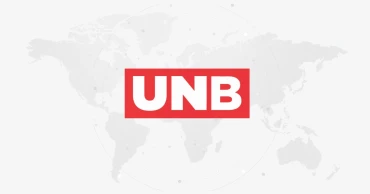
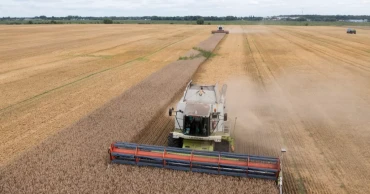
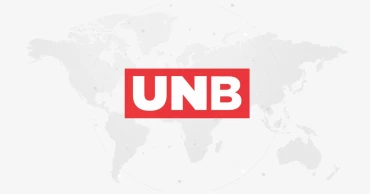
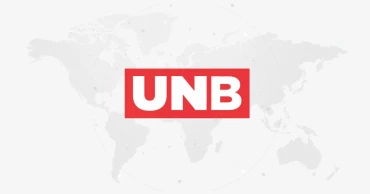
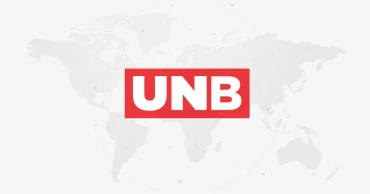
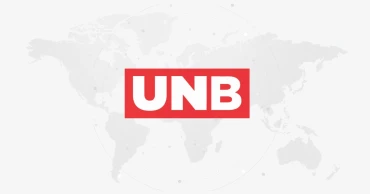
.jpg)








